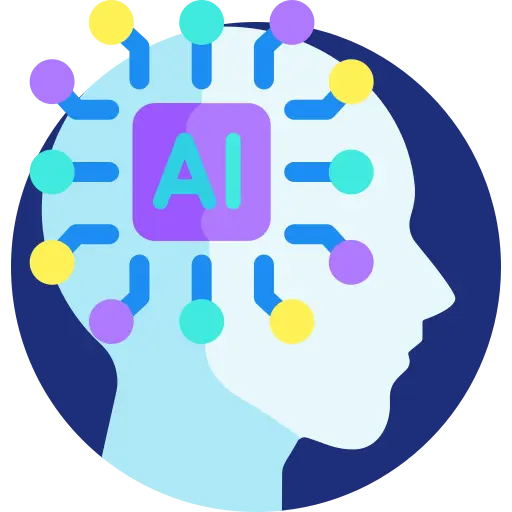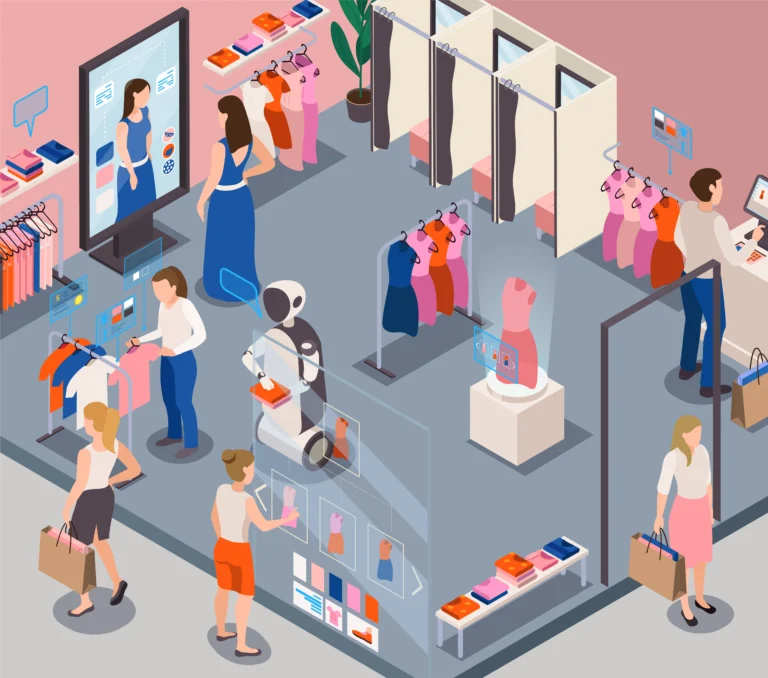AI and NLP: A Match Made in Heaven!
Introduction
- AI and NLP are two cutting-edge technologies that are revolutionizing the way we interact with machines.
- Natural Language Processing (NLP) has made it possible for machines to understand and respond to human language like never before, from speech recognition to text-to-speech conversion.
- Together, AI and NLP are creating a whole new world of possibilities, enabling machines to understand and respond to human language in a more natural and intuitive way.
- In this blog, we will dive deep into how these two technologies are working together to create a new era of human-machine interaction.
The Evolution of NLP

- AI and NLP are two powerful technologies that are transforming the way we interact with machines.
- NLP has made it possible for machines to understand and respond to human language in a way that was once thought impossible, from speech recognition to text-to-speech conversion.
- With the help of AI, NLP has become even more advanced, allowing machines to understand and respond to complex and nuanced language, making them more human-like.
- Together, AI and NLP are opening up a whole new world of possibilities, from chatbots to virtual assistants, and even self-driving cars.
- In this blog, we will explore the exciting ways in which AI and NLP are working together to create a new era of human-machine interaction.
- We will delve into the various applications of AI and NLP and how they are being used to improve different industries such as healthcare, business, and education.
- Join us as we uncover the revolutionary potential of AI and NLP and how it’s creating a more natural and intuitive way for machines to understand and respond to human language.
AI-Powered NLP: A Game Changer
- AI-powered NLP is a game changer, taking the capabilities of NLP to the next level.
- When combined with AI, NLP systems become even more powerful and able to understand and respond to more complex and nuanced language.
- AI-powered NLP makes it possible for machines to communicate with users in a more human-like manner, for example, an AI-powered chatbot can carry on a conversation, answer questions, and provide information just like a human.
- AI-powered NLP also has the ability to generate new text, like writing articles, composing emails, and even creating poetry, making it a valuable tool for content creation.
- AI-powered NLP opens up a world of possibilities for businesses and industries, from customer service to content creation, making it a crucial technology for the future.
- AI and NLP together bring a new level of natural language understanding and response, making the interaction with machines more human-like and intuitive.
- With the increasing capabilities of AI-powered NLP, we can expect to see even more exciting applications in the future.
Real-World Applications of AI-Powered NLP
AI-powered NLP has a wide range of real-world applications, from healthcare to business to education.
In Healthcare
- In healthcare, AI and NLP are being leveraged to extract important information from electronic medical records.
- By using NLP, the system can understand and process unstructured data such as patient notes, lab results, and radiology reports, making it easier for doctors to access patient information.
- This allows doctors to have a more complete picture of the patient’s health, providing better care and improving diagnostic accuracy.
- AI-powered NLP can also be used to identify patterns and trends in patient data, providing valuable insights for medical research and disease management.
- With the help of AI and NLP, healthcare providers can access and analyze vast amounts of patient data, allowing them to make more informed decisions and provide more efficient and effective care.
- Furthermore, AI-powered NLP can also assist in reducing administrative tasks such as coding and billing, freeing up more time for healthcare providers to focus on patient care.
- In healthcare, the ability of AI and NLP to extract and process large amounts of data in a fast and accurate way is making them a valuable tool for improving patient care.
In the Business World
- In the business world, AI-powered NLP is being used to automate customer service, allowing companies to respond to customer inquiries faster and more efficiently.
- By using NLP, chatbots and virtual assistants can understand and respond to customer queries in a natural and intuitive way, providing quick and accurate answers.
- This automation of customer service can significantly reduce response time and increase customer satisfaction, leading to improved customer retention and loyalty.
- Additionally, AI-powered NLP can also be used to analyze customer interactions, providing valuable insights into customer needs and preferences.
- By understanding customer needs and preferences, companies can tailor their products and services to better meet the needs of their customers, leading to increased sales and revenue.
- Furthermore, AI-powered NLP can also be used to identify patterns and trends in customer interactions, providing valuable insights for marketing and sales strategies.
- The ability of AI-powered NLP to understand and respond to customer queries in a natural way and provide insights into customer needs and preferences is making it a valuable tool for businesses to improve their customer service and increase revenue.
In Education
- In education, AI and NLP are being used to create personalized learning experiences for students.
- By using NLP, the system can analyze students’ performance data such as test scores, homework completion, and class participation, providing a comprehensive view of the student’s strengths and weaknesses.
- Based on this analysis, the system can adapt the curriculum accordingly, providing a tailored learning experience for each student. This can lead to improved student engagement, motivation, and ultimately better performance.
- Additionally, AI-powered NLP can also be used to analyze students’ writing and speech, providing valuable feedback on grammar, vocabulary, and communication skills.
- Furthermore, AI and NLP can also be used to create personalized learning materials, such as interactive quizzes, games, and simulations that are tailored to the student’s learning style and level.
- With the help of AI and NLP, educators can get a deeper understanding of each student’s needs and preferences and provide a more effective and personalized learning experience, leading to improved student outcomes.
- The ability of AI and NLP to analyze students’ performance and tailor the curriculum accordingly is making them valuable tools for creating personalized learning experiences in education.
AI-powered NLP also has applications in industries such as finance, retail, manufacturing, and many more, making it a versatile technology with endless potential. The ability of AI-powered NLP to understand and respond to human language in a more natural and intuitive way is making it a valuable tool for various industries to improve their processes, services, and products.
AI and NLP are constantly evolving and with their increasing capabilities, the possibilities for their real-world applications are endless.
Conclusion
AI and NLP are a match made in heaven. Together, they have the potential to change the way we interact with machines, making them more human-like and intuitive. As these technologies continue to evolve, we can expect to see even more exciting applications in the future.
What is NLP?
Natural Language Processing (NLP) is a branch of artificial intelligence that deals with the interaction between computers and human languages. It involves using computer algorithms to understand and generate human language, including speech and text. The goal of NLP is to enable computers to understand, interpret, and generate human language in a way that is similar to how humans do it. This technology is used in a wide range of applications such as language translation, text-to-speech conversion, speech recognition, sentiment analysis, text classification, and more. NLP has become a crucial technology for many industries and businesses, as it allows them to process, analyze, and understand large amounts of unstructured data such as customer interactions, social media posts, and customer reviews.
What are the main applications of NLP?
NLP has a wide range of applications including, but not limited to language translation, text-to-speech conversion, speech recognition, sentiment analysis, text classification, named entity recognition, machine summarization, question answering, chatbots, virtual assistants, and more.
How does NLP differ from speech recognition and text-to-speech conversion?
NLP is a broader field that encompasses speech recognition and text-to-speech conversion. Speech recognition is the process of converting spoken language into written text, while text-to-speech conversion is the process of converting written text into spoken language. Both are important components of NLP, but NLP also includes other capabilities such as understanding and generating human language, sentiment analysis, and text classification.
What are the benefits of using AI with NLP?
AI can improve NLP in several ways. For example, AI-powered NLP systems can understand and respond to more complex and nuanced language, making them more human-like. AI can also be used to generate new text, such as writing articles or composing emails, making it a valuable tool for content creation. Additionally, AI can help improve the accuracy and efficiency of NLP tasks by analyzing large amounts of data, identifying patterns and trends, and making predictions.
What are some of the challenges facing NLP today?
Handling ambiguity and context: NLP systems struggle to understand the meaning of words and phrases in context, which can lead to confusion and errors.
Handling idiomatic expressions and slang: NLP systems struggle to understand informal language, which can lead to confusion and errors.
Handling multilinguality: NLP systems struggle to handle multiple languages and dialects, which can lead to confusion and errors.
Handling sarcasm and irony: NLP systems struggle to understand sarcasm and irony, which can lead to confusion and errors.
Dealing with biased data: NLP systems can perpetuate bias if they are trained on biased data, which can lead to unfair and discriminatory results.
What are some of the most recent advancements in NLP?
Pre-trained models: Pre-trained models, such as BERT and GPT-2, have improved the performance of NLP tasks such as language understanding and text generation.
Transformer models: Transformer models, such as the Transformer and the Transformer-XL, have improved the performance of NLP tasks such as language understanding and text generation.
Neural Machine Translation: Advancements in NMT technology have improved the performance of machine translation, allowing for more accurate translations.
Multitask Learning: Multitask learning, where a model is trained to perform multiple NLP tasks simultaneously, has improved the performance of NLP models.
How does NLP affect human-computer interaction?
NLP improves human-computer interaction by allowing computers to understand and respond to human language in a more natural and intuitive way. This can be seen in applications such as chatbots, virtual assistants, and speech recognition systems, which allow users to communicate with computers using natural language. With the help of NLP, computers can understand and respond to human language in a more natural and intuitive way, which can lead to more efficient and effective communication between humans and computers.
How does NLP relate to machine learning and AI?
NLP is a subfield of AI and it heavily relies on machine learning techniques. Machine learning algorithms are used to train NLP models to understand and generate human language. NLP models use techniques such as supervised and unsupervised learning, deep learning, and reinforcement learning to learn from and make predictions on large amounts of text data. With the help of machine learning, NLP models can improve their performance over time by constantly learning from new data.
What are some of the ethical considerations surrounding NLP?
Some of the ethical considerations surrounding NLP include:
Bias: NLP models can perpetuate bias if they are trained on biased data, leading to unfair and discriminatory results.
Privacy: NLP models can collect and process sensitive personal information, raising privacy concerns.
Transparency: NLP models can be difficult to interpret, making it hard to understand how they arrived at a particular decision. This can make it hard to hold the model accountable for its decisions.
Explainability: NLP models can be difficult to interpret and explain to humans, making it hard to understand how they arrived at a particular decision.
Autonomous decision-making: NLP models can be used to make decisions that affect people’s lives, such as in the case of automated hiring or parole decisions, raising ethical concerns about accountability, fairness, and transparency.















